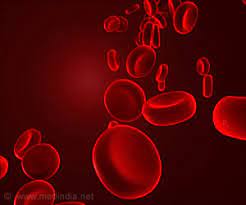The universal recipient blood type is compatible with all other blood types. It implies that people with this type of blood group can receive blood or organ transplant from any other blood type. It is denoted as AB positive (generally referred to as AB+). However, it is the rarest blood type. That is why the universal acceptor blood group is highly valued.
Receiving blood from the right blood type is necessary. It is important so that the body can accept the blood that comes externally, and the immune system can help prevent the body from several detrimental conditions. However, not receiving the right blood type can make the immune system attack the blood cells that are donated. This problem may lead to life-threatening conditions. Shock and heart failure are the most common consequences of the same. In the same way, blood type ‘O’ is often regarded as a universal donor. Let us read this article further to gain more information about the same.
The Background Behind Universal Acceptor Blood Group
A blood recipient may have diverse reactions to a transfusion. It is measured by antigens on blood cells. In simple terms, antigens are substances used by immune systems to react to transfusions they receive. So, if your immune system comes across a certain antigen that the body’s new cells are unable to find, it is bound to be attacked.
You must understand that there are seven blood types in total. It includes the universal recipient blood type. These are the seven types-
- O Negative
- O Positive
- A Negative
- A Positive
- B positive
- B Negative
- AB Negative
- People with blood type A will contain A antigen in their bodies.
- People with blood type B will have B antigen.
- Generally, the most distinctive blood type is O. However, these do not contain any antigens. On the other hand, people with an O-negative blood type are regarded as universal donors.
- If you have an AB blood type, you will have both A and B antigens in your body. It means you are at a greater advantage of receiving any of these blood types if required
What Type Of Blood Transfusion Reactions Can Occur?
We have already talked about universal acceptor blood groups. However, it is time to get into more in-depth detail regarding the same.
Sometimes, there can be a conflict of compatibility between blood types O, B, and A. It may result in what we call Hemolytic transfusion. Issues with this can lead to severe consequences such as jaundice. You may even experience yellow tints in the skin and eyes. Sometimes, blood clotting may also occur, causing shocks and eventual death. So, it is important to consult a doctor to safeguard from such risks.
Some people may also experience non-hemolytic transfusion. The symptoms for it include chills, skin rash, fever, and itching in some cases. Generally, these symptoms are not so severe, so they eventually go away in one or two days. But we still recommend you consult your doctor. It will help keep health problems at bay. You may also learn more about universal acceptor blood groups for more knowledge.
Ending Note
We hope that this content helps you find valuable information on universal donors and more. Please get in touch with your doctor for more information.

